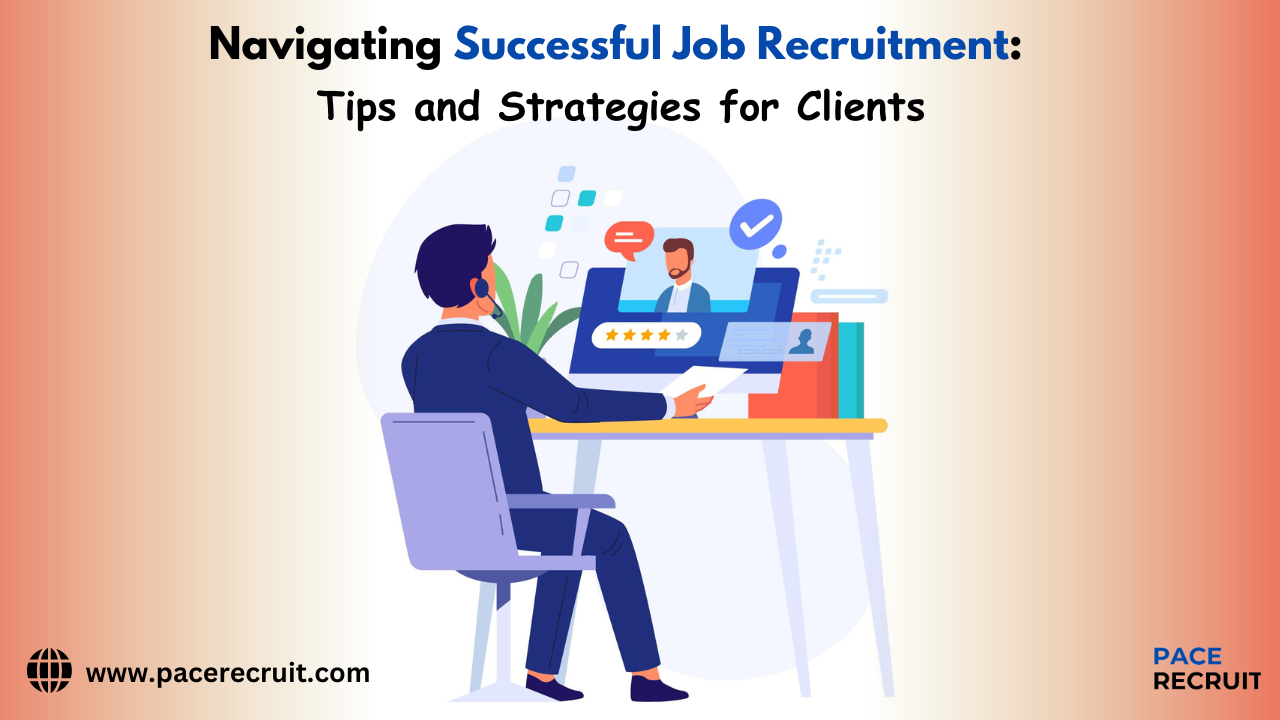In the competitive landscape of job recruitment, success hinges on a strategic approach that aligns with industry best practices. For clients seeking top-tier talent, understanding the nuances of recruitment can significantly impact hiring outcomes. This comprehensive guide explores essential tips and strategies for clients to navigate successful job recruitment.
Table of Contents
Understanding the Recruitment Process
Successful Job Recruitment begins with a thorough understanding of the recruitment process. This involves identifying the need for a new hire, defining the role, sourcing candidates, screening applications, conducting interviews, and making an offer. Each stage must be meticulously planned and executed to attract and secure the best talent.
Defining Clear Successful Job Requirements
Clear job requirements are the foundation of effective recruitment. Clients must outline specific qualifications, skills, and experience needed for the role. This clarity helps in attracting candidates who are well-suited for the position and reduces the time spent on screening unsuitable applications.
Leveraging Technology in Recruitment
Technology plays a crucial role in modern recruitment. Applicant Tracking Systems (ATS), Artificial Intelligence (AI), and Machine Learning (ML) can streamline the recruitment process. These technologies help in sorting resumes, identifying top candidates, and predicting candidate success, making the recruitment process more efficient and effective.
Crafting Compelling Job Descriptions
A compelling job description is key to attracting top talent. It should be detailed yet concise, highlighting the role’s responsibilities, required qualifications, company culture, and growth opportunities. A well-crafted job description sets the tone for the recruitment process and ensures candidates have a clear understanding of the position.
Utilizing Multiple Recruitment Channels
Relying on multiple recruitment channels increases the chances of finding the right candidate. Clients should use job boards, social media, company websites, recruitment agencies, and employee referrals to cast a wide net. Each channel offers unique advantages and helps in reaching a diverse pool of candidates.
Implementing Effective Interview Techniques
Effective interviews are critical in assessing candidate suitability. Structured interviews with standardized questions ensure a fair evaluation of all candidates. Behavioral interview techniques, which focus on past experiences and actions, can provide insights into a candidate’s potential performance.
Ensuring a Positive Candidate Experience
A positive candidate experience enhances the employer’s reputation and increases the likelihood of securing top talent. Timely communication, respectful treatment, and a streamlined recruitment process contribute to a positive experience. Candidates who feel valued are more likely to accept job offers and speak positively about the company.
Emphasizing Employer Branding
Employer branding is the perception of the company as a place to work. A strong employer brand attracts top talent and differentiates the company from competitors. Highlighting company values, culture, and employee testimonials can create a compelling employer brand that resonates with potential candidates.
Collaborating with Recruitment Agencies
Recruitment agencies can be valuable partners in the hiring process. They offer expertise, industry insights, and access to a broad talent pool. Collaborating with a reputable agency can save time, reduce hiring costs, and improve the quality of hires. Clients should choose agencies with a proven track record in their industry.
Continuous Improvement and Feedback
The recruitment process should be continuously reviewed and improved. Gathering feedback from new hires, hiring managers, and candidates provides insights into areas of improvement. Regularly updating recruitment strategies based on feedback ensures the process remains effective and aligned with organizational goals.
Conclusion
Navigating successful job recruitment requires a strategic approach, leveraging technology, and a commitment to continuous improvement. By defining clear job requirements, utilizing multiple recruitment channels, and ensuring a positive candidate experience, clients can attract and secure top-tier talent. Collaboration with recruitment agencies and emphasizing employer branding further enhances the recruitment process.
For expert recruitment services and to discuss your hiring needs, visit our Contact Us page at www.pacerecruit.com/contact-us/
FAQs on Successful Job Recruitment
1. What are the key stages in the recruitment process?
The key stages include identifying the need for a new hire, defining the role, sourcing candidates, screening applications, conducting interviews, and making an offer.
2. How can technology improve the recruitment process?
Technology, such as Applicant Tracking Systems (ATS) and Artificial Intelligence (AI), streamlines the recruitment process by sorting resumes, identifying top candidates, and predicting candidate success.
3. Why is a positive candidate experience important?
A positive candidate experience enhances the employer’s reputation, increases the likelihood of job offer acceptance, and encourages candidates to speak positively about the company
4. What role does employer branding play in recruitment?
Employer branding attracts top talent by highlighting the company’s values, culture, and employee testimonials, differentiating the company from competitors.
5. How can recruitment agencies assist in the hiring process?
Recruitment agencies offer expertise, industry insights, and access to a broad talent pool, saving time, reducing hiring costs, and improving the quality of hires.

